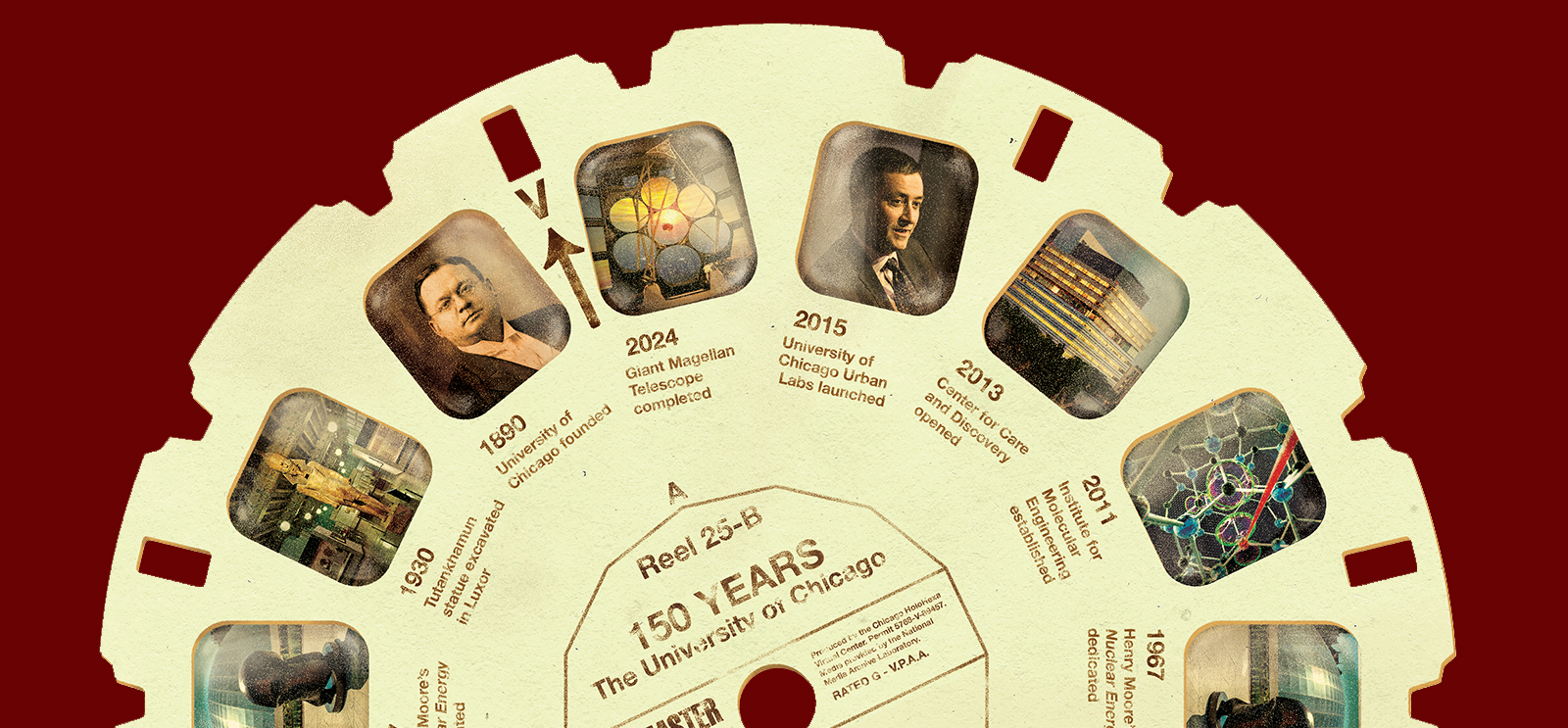
As the University looks back on 125 years, campus leaders look ahead to the 150th anniversary. (Illustration by Gonçalo Viana)
Prospect and retrospect.
This fall, the University celebrates 125 years of inquiry and impact that began with its incorporation on September 10, 1890. A packed slate of campus events and a quasquicentennial page on the University’s website offer ways to remember and celebrate. At the Magazine, we looked back and ahead: back with a selection of vintage UChicago postcards (“Déja Views”), and ahead by asking faculty and other campus leaders to predict the state of their fields in the University’s 150th year. Our cover illustrator, Gonçalo Viana, brought past and future together, imagining a new use for an old technology of remembering, the View-Master. Readers of my generation may feel a double pang of nostalgia.
When we first asked campus experts to forecast the next 25 years in their fields, we had trouble forecasting their reactions to our request. In an unpredictable and rapidly changing world, who would be gutsy enough to go on record about new developments a quarter of a century from now?
UChicago thinkers, natch. Twenty-two scholars went out on that limb (see “Future Tense”). Computer science professor Andrew Chien glimpses a future where computing is viewed as a science and an art. Globalization and migration will influence the spread of religion and languages in particular ways, predict the Divinity School’s Richard A. Rosengarten, AM’88, PhD’94, and linguist Salikoko Mufwene, PhD’79. The Law School’s Geoffrey R. Stone, JD’71, is confident about which recent Supreme Court case will be overturned by 2040.
In College dean John W. Boyer’s (AM’69, PhD’75) reflections on the prospects for liberal arts education, UChicago’s past decodes its future. Boyer’s essay comes as the ink is barely dry in his years-in-the-making The University of Chicago: A History, which you can read about in “Past and Present.”
Fond farewell
Associate editor Lydialyle Gibson has moved on from the University to start a new chapter at Harvard Magazine. For ten years, Lydia graced our pages with indelible stories about ideas and—especially—the people behind them. She served as coeditor of UChicago Journal and managed our Metcalf interns. But most of all, Lydia wrote. Her award-winning story about organismal biology professor Michael LaBarbera and his menagerie of marine animals, “A Life Aquatic” (Mar–Apr/14), delved into what made LaBarbera such a perceptive observer of the mysterious creatures he studied and taught about. Part of it, she concluded, was his ability to get inside their skin—or carapace—and see the world as they do. Lydia’s stories do the same. We’ll miss her in these pages.
